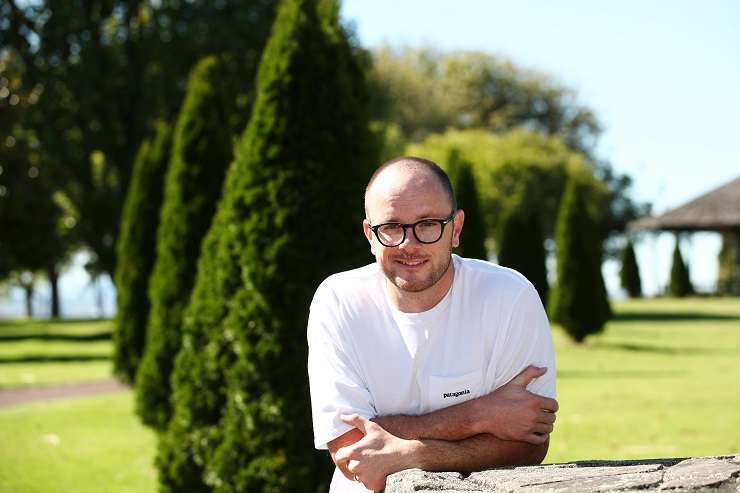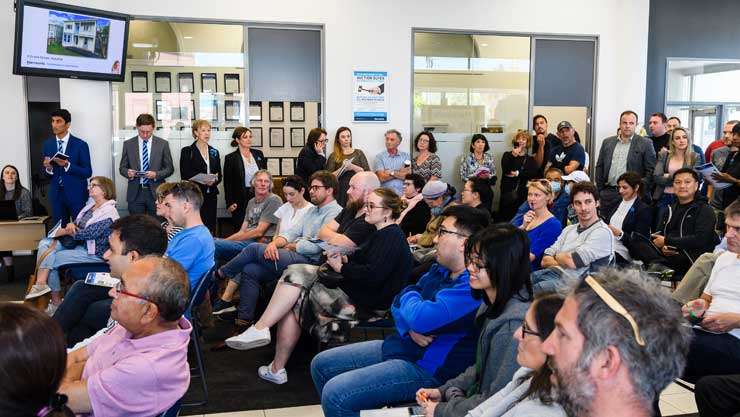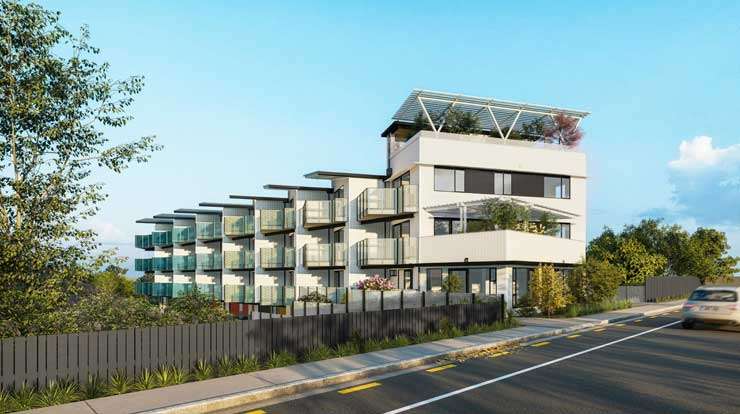The head of one of New Zealand’s biggest real estate offices has said his agents have begun to vet their buyers more closely since the housing market shifted.
Tom Rawson, the co-owner of Ray White Manukau, in South Auckland, revealed to OneRoof last month that some developers in his patch were having difficulty settling on properties they had bought late last year when the Auckland market was still riding high.
To ensure deals made in the auction room are completed, Rawson’s firm is now requiring all bidders register for auctions in their own name and provide an address and lawyer’s name.
He said that some buyers had been using the names of look-through/shell companies when registering to bid. The problem, he said, was that these companies often fold between the auction and settlement date, and because they have no assets, vendors “can’t chase them”.
Start your property search
“We now check the company’s register to confirm they’re a shareholder or director; we check IDs to make sure they are who they say, and we cross check what other assets they own.”
While the new Anti-Money Laundering regulations require agents to vet vendors, they don’t need to do the same for buyers, who need only go through the checks via their lawyer once they have purchased, not before auction.
Rawson said the risks of deals falling through had increased since auctions went online.
“In an auction room, you’re shaking hands and eye-balling bidders. You sit down in a room with them after they’ve bought. When they’re hiding behind a computer at home, we’re asking for a lot more information.”

Tom Rawson, co-owner of Ray White Manukau: "I had some abusive phone calls from developers." Photo / Fiona Goodall
He said that other agencies had gotten in contact with him since he told OneRoof about developers threatening to default on sales.
“Other agencies, mainly in South Auckland, are experiencing the same problem.
“My plan with my team is to make sure that people settle, rather than the deal fall over, that’s better for everyone. We identified a risk early on. When we started doing [the vetting], I had some abusive phone calls from developers. They weren’t happy.”
Rawson said that his agency instigated safeguards for vendors at the end of last year, negotiating other options with buyers such as extra deposit.
“We had some auction variances that allowed only 5% deposit, not 10%. Now we won’t do that.
“Buyers are less like to walk away from a $100,000 than a $50,000 deposit [if they default]. Some buyers aren’t happy, but vendors would rather sell and settle than sell to someone who may not settle.”
Ray White Commercial co-director Finn Hurst, who specialises in development sites around the city, said that he’d not come across any developers forced into distress sales yet.
“I suspect there is probably some coming, but we’ve not had that conversation.”

An in-person auction in Wellington at the end of 2020. Agents say buyers are harder to scrutinise at online auctions. Photo / Getty Images
Hurst said his agency was doing due diligence on would-be buyers to check out their other properties, their finance positions and funding.
“The bigger ones who have been around a while, we’re not too worried about them. They have a pipeline [of projects] and tend to be cashed up.”
He added: “We always want to know the individual behind the company, but that’s not always easy to do. You’ve got to ask the questions. If they just show up on the day, that’s ringing alarm bells.”
Hurst aid that developers with six to nine months of construction underway, might be a bit more cautious about buying for their next project.
“They’re asking ‘do I buy now or wait for a while?’ There’s a lot more stock coming on, so they might wait for a little while.”
He added some developers were waiting on changes to the density rules, especially around transport hubs, as they wait to see how Auckland Unitary Plan is modified by new central government regulations [consultation begins in April this year], while others are watching for the release of publicly-owned land around the city.
“Some developers are seeing the pipeline [of development construction] running out so are searching for consented developments. They know that to get through Council in some cases is taking 18 months, so they’re looking for shovel-ready projects,” Hurst said.
He is marketing such a project on a 1,012sqm site on Te Atatu Road, West Auckland, where resource and building consents are already in place for a 23-or 24 -unit architect-designed apartment block.

An artist's impression of development project which is for sale on Te Atatu Road, in west Auckland. Photo / Supplied
He said different developers could see the potential to on-sell the units as freehold title apartments or create a boutique retirement village or build-to-rent project.
Barfoot & Thompson auctioneer Marian Tolich said she had not heard of any problems around the settlement of purchases by developers.
“We are very much insisting on 10% deposits now. We’re not doing variations that allow 5% any more. A company has to be approved before they bid.
“In South Auckland we’ve had a lot of the same people buy every week, so we know who they are,” she said, adding that mortgagee sales haven’t increased and there are no signs of over-stretched buyers.
However, the new finance rules are biting. Tolich said she had two recent cases of buyers with bank pre-approvals having to get further valuations done on properties they’d bought unconditionally.









































































